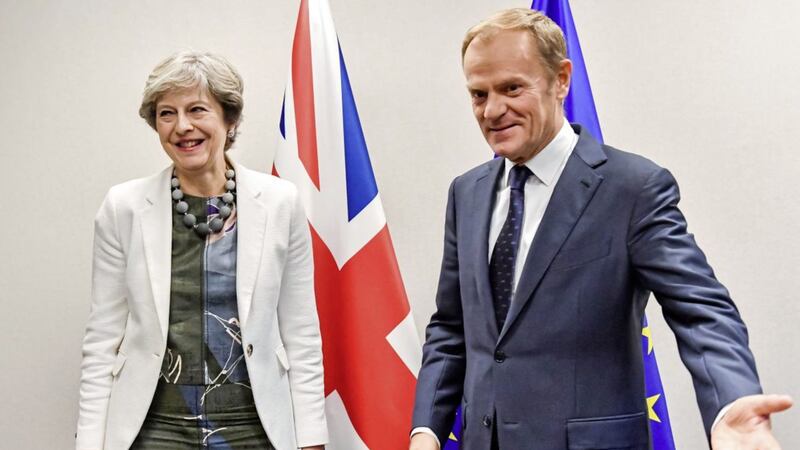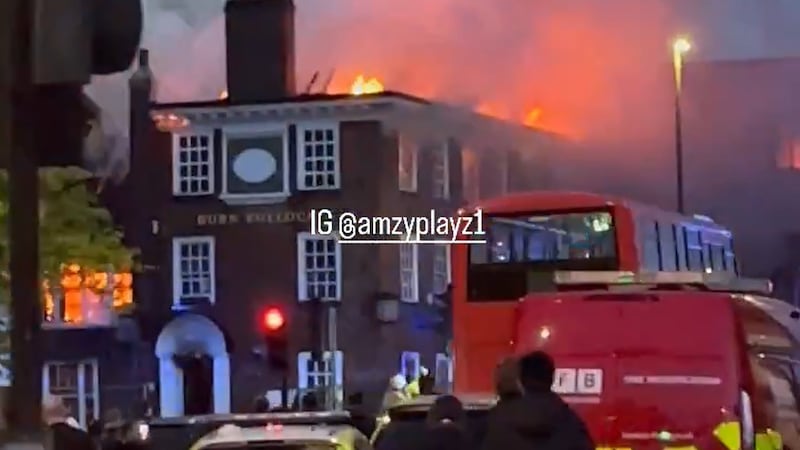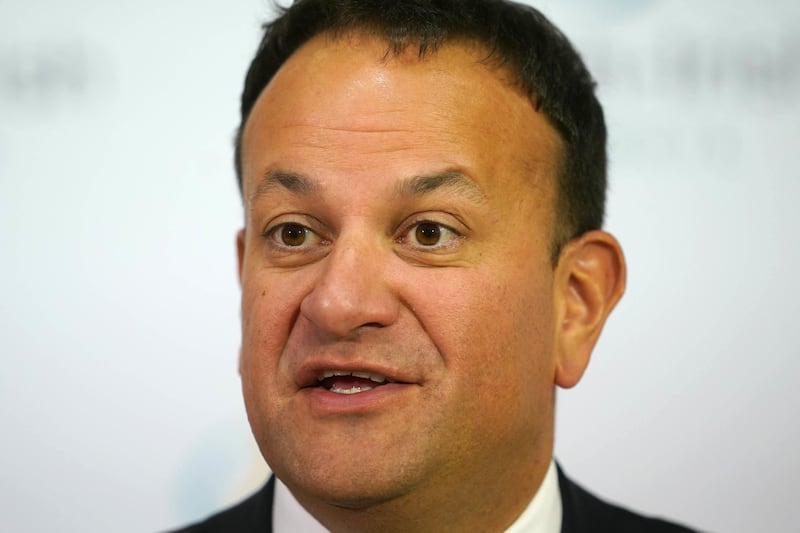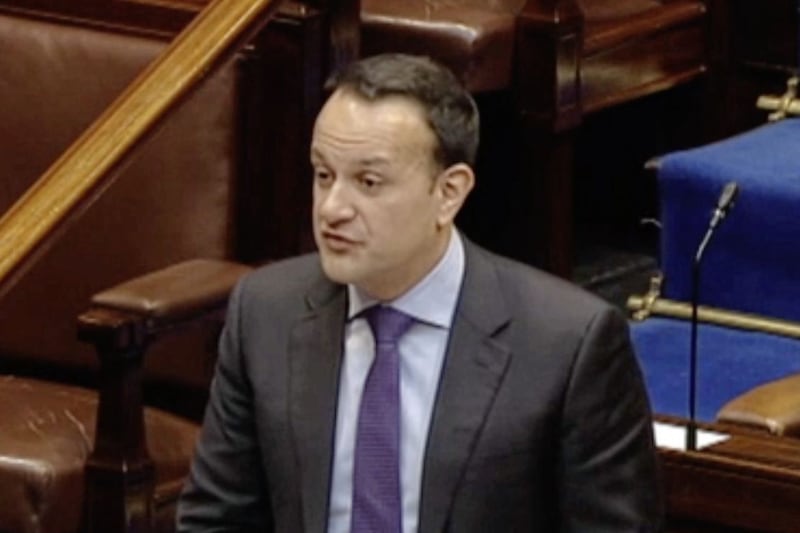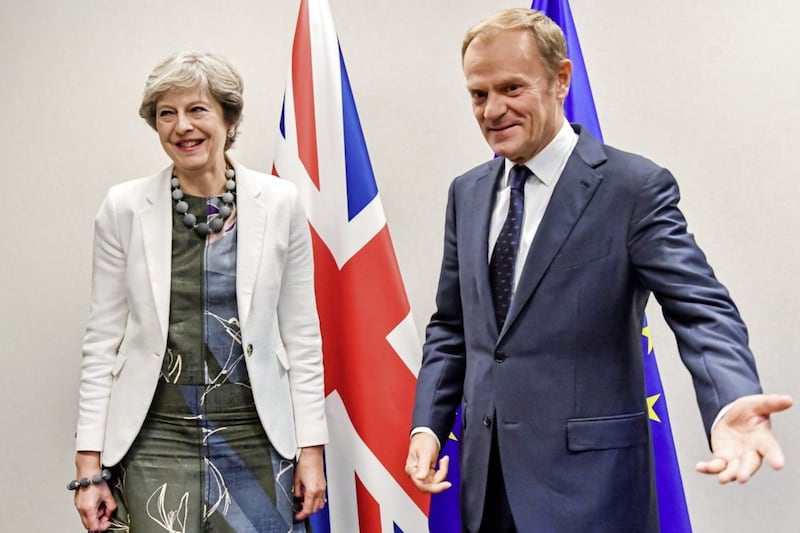EUROPEAN Union leaders have agreed that there should be no physical infrastructure at the border after Brexit, according to Theresa May.
The prime minister was speaking in Brussels yesterday as she concluded her contribution to a crunch European Council summit.
The Tory leader said it was vital that Brexit had no impact on the peace process and that the Good Friday Agreement must be at the heart of any deal.
"Northern Ireland's unique circumstances demand specific solutions," she said.
"It's vital that joint work on the peace process is not affected in any way – it's too important for that.
"Both sides agree that there cannot be any physical infrastructure at the border."
Taoiseach Leo Varadkar said he was heartened by Mrs May's language, but called for more detail on the border question.
"She specifically referenced the unique situation for both Ireland and Northern Ireland, which I think was very positive," he said.
"She strengthened her language in relation to the border."
The overall mood at the close of the Brussels conference appeared more conciliatory.
European Council President Donald Tusk said reports of deadlock over the negotiations may have been exaggerated.
He said progress was "not sufficient" to begin trade talks with Britain but that "doesn't mean there is no progress at all".
Mr Tusk said he felt there was "goodwill" on both sides.
In their summit conclusions, the EU leaders said there was "some progress" on protecting the Good Friday Agreement and Common Travel Area but these principles would need "further refinement".
However, it was again stressed that the onus was in Britain to overcome potential difficulties, with the leaders saying they expect the UK to '"present and commit to'" flexible and imaginative solutions called for by Ireland's unique situation.
The 27 EU leaders also made it clear to Mrs May that she must make more concessions on Britain's Brexit divorce payment in order to unlock talks on a future trading relationship.
French President Emmanuel Macron suggested that the bill could top €40 billion (£36 billion).
Mrs May repeatedly dodged questions over how much the UK is ready to pay, insisting that the size of a "full and final settlement" will not emerge until agreement is reached on all aspects of Brexit.
But she did not deny suggestions that it could be "many more billions" than the €20 billion indicated in her speech in Florence last month.
In their formal conclusions, the 'EU27' said they aimed to move to the second phase of negotiations "as soon as possible" and would reassess the state of progress at the next summit on December 14-15.
DUP MEP Diane Dodds welcomed the "more positive note" struck at the summit but said the delay in beginning talks on trade was "unacceptable".
"The reality is that while progress has been achieved toward agreeing joint principles on the retention of the Common Travel Area, challenges facing the movement of goods on a cross-border basis remain unaddressed."
Ulster Unionist MEP Jim Nicholson also urged EU leaders to proceed to formal talks on trade as soon as possible, while Alliance's Stephen Farry said a special deal for Northern Ireland should include continued participation in the single market.
However, Sinn Féin northern leader Michelle O'Neill said she told British international trade secretary Liam Fox in a meeting yesterday that Brexit will have disastrous consequences for the Good Friday Agreement and Ireland.
"It is clear the Tories are floundering over Brexit as their approach to these negotiations is being rejected by the EU," she said.
"In fact the only people now supporting the Tories on Brexit appear to the DUP, regardless of the dire consequences for the people of the north."
